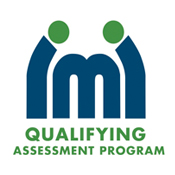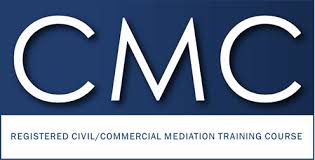- Core Mediation Advocacy
- Bespoke Mediation Advocacy for Senior Practitioners
- SCMA Accredited Civil/Commercial Mediator Training
Core Mediation Advocacy
1 Day or x 3 evening modules
Open courses at per person rates. In house courses available at group prices on request
Learning Objectives
- To be able to advise the client whether, and if so, when to mediate, being appraised of all the advantages and disadvantages attaching to your lay client’s interests.
- To be able to explain with confidence the process, the procedure you desire for your client’s mediation, the cost, timetable and potential outcomes, and to compare these with both litigation and other dispute resolution methods.
- To engage actively and on an informed basis in mediator selection.
- To advise upon the content of the mediation agreement.
- To understand and be able to advise upon the corpus of law now surrounding mediation practice concerning
- The validity of contractual clauses containing agreements to mediate
- The enforceability of the mediation agreement
- Confidentiality of the process
- The existence or otherwise of a ‘mediation privilege’
- The enforceability of settlements obtained in mediation
- Mediation under actual or implicit duress by the courts
- All questions of costs
- To engage directly and proactively with the mediator prior to the mediation on matters of process, including date, venue, attendees and their roles, and, where appropriate, on the issues, potential solutions and potential problems.
- To engage in a pre-mediation conference with your lay client to obtain a clear understanding of not just the legal case, but the client himself or herself, the client’s wider business affairs, financial viability, reputation, perceptions of the other side’s position, any ongoing or intended ongoing relationship between the parties – whether commercial, social or personal; the client’s needs, aspirations and expectations from the process. What, for the client, represents success; what is his or her ambition for the outcome; and what is most important – not to the law, not to you – to the client. And what might be the other party’s views of such questions.
- To prepare the documentation required by the mediator or the process, including a case summary, list of issues, position or interest statement, schedule of financial claim, costs schedule or budget, draft settlement agreement or heads of terms, draft Tomlin order, or any legal, expert or evidential analysis that may be apposite to the circumstances.
- To prepare conscientiously for the mediation day, including getting up the legal case to the standard needed at trial, subject only to the available information; to build on that foundation your knowledge and arguments in respect of the client’s wider needs and interests; to understand your client’s aims, and prepare an opening statement accordingly; to formulate your negotiation tactics; to know how to proceed in joint session; to know when and how to use the mediator as an ally to find out information and promote a particular deal; to know when to protect the client from being manipulated; to know when and how to make concessions; and always to be able to advise the client what will probably happen if a settlement cannot be achieved – the cost of walking away, formulated as part of the best alternative to a negotiated agreement (‘BATNA’) and, alternatively, the worst (‘WATNA’) or probable (‘PATNA’).
Bespoke Mediation Advocacy for Senior Practitioners

For IMI Mediation Advocacy Accreditation please click here
In-house Training
6-8hrs as requested, x 2 mornings or evenings
Price on application
Learning Objectives
- To indentify and engage in advanced mediation dynamics
- Securing party control
- Getting the best from the mediator
- Advanced planning for mediation
- Advanced negotiation strategies and counter-measures in mediation
- Understanding evaluation in mediation
SCMA Registered Civil/Commercial Mediator Training
From £1500 per person
PROGRAMME OUTLINE and SYLLABUS
Day 1
09.00 Welcome
Introductions
The course
- what will be covered in the next 5 days
- assessment
An overview of mediation in context
- a brief overview of the dispute resolution landscape – litigation, arbitration, hybrids etc
- importance of early intervention
- definitions
- key features
- The structure of Commercial Mediation
- Different Mediation models
- Mediation principles and common features
- Mediation ground rules – application to informal and formal models of mediation
- confidentiality
- privilege
- authority
The 5 stages of mediation – brief overview
- preparation
- opening
- exploration
- negotiation
- closing
- The Decision to Seek Mediation
- Routes to Mediation
- The Role of the Mediator
- The Role of Party Representatives
- Choosing a mediator
- The Mediation Agreement
- Preparation Phase: The Pre-Mediation Process
- attendees,
- paperwork,
- preliminary meetings,
- fact gathering,
- liaison with legal representatives
- The Mediation Meeting
- Basic Skills for Effective Mediation
Demonstration Exercises
Not before 17.30 Close
Day 2
09.00 Review of Day 1 learning
- Advanced Skills for Effective Mediation
- Party preparation
- The opening session
- importance
- control by mediator
- length
- general management
- room set-up
- opening statement by mediator
- The Exploration Phase
- Verbal communication skills and techniques
- Active listening
- empathy
- questions
- re-framing
- reality testing
- summarising
Role play exercises
Not before 18.00 Close
Day 3
09.00 Review of Day 2 learning
- The Attributes of an Effective Mediator
- Utilising Mediation Principles
- Negotiation Phase
- Using and Dealing with Negotiation Strategies
- Getting to Yes
- Breaking deadlock
- Understanding other Mediation Structures
- Using Mediation Skills in other ADR processes
Negotiation exercises
Role play exercises
The mediation market – Introduction to Restorative Justice and Observations
Not before 18.00 Close
Day 4
09.00 Review of Day 3 learning
- Settlement or Concluding Phase
- The Settlement Agreement
- Time Limited Mediations
- Ethics in Mediation
- Costs Issues
Skills exercises
Role play exercises
Mentoring for assessment
Not before 18.00 Close
Day 5
Assessment Day
09.00 Introduction to Assessment Methodology and Assessors
Role play exercises
- Mentoring
- Multi Party Mediation
- Co-mediators
- Dealing with Mediation “Failure”
- Awareness of Regulation and Juridification
International and cross-border mediation; the EU Directive
Observations; SCMA Mediation Advocates; SCMA Mediators Panel
c.16.30 Close of Course
Post Course Assignment
Note: The course will be conducted in English and apply English law.
SCMA reserves the right to alter the programme as it considers appropriate

